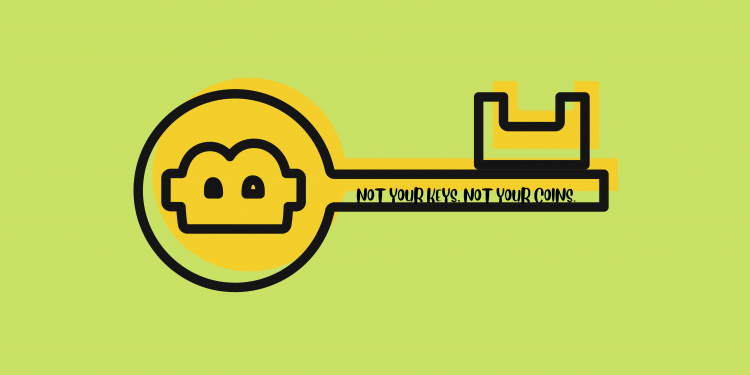‘Not your keys, not your coins’ is a popular crypto adage that has gained traction in the crypto community again after a series of major crypto exchange hacks this year-and that was well before the disaster that is FTX.
Do you really own your coins?
The phrase essentially means that an investor does not own his or her crypto assets and that the third party crypto service provider controls those assets. This is a problem for many crypto holders, especially those who do not have the time or technical knowledge to make their own wallets.
If FTX doesn’t provide the impetus for storing your coins in a wallet that you control, we don’t know what will!
Like a bank account, where you can log in and check your account, you cannot access your funds without the password or private key that is generated when you create a wallet. Your private key is like a PIN and a password, and it is used to confirm your ownership of your wallet address. It is a key that is similar to a bank account password, which unlocks the wallet’s ability to send or receive crypto.
However, private keys can be compromised, and a third party can do whatever they want with your money. If you do not have control of your private key, it is like giving another person the keys to your house.
If you lose control of your private key, you lose the ability to access your crypto assets, and you can also lose your crypto holdings if your exchange is compromised or crashes. The leading exchanges have insurance funds that will cover losses in the event of a hack. Despite this, there are still instances where people lose their crypto assets.
How wallets work
A crucial point to understanding how to store your crypto assets is knowing how a wallet works. A wallet is a device that stores your private keys and public keys. A public key is similar to an address that can be shared with anyone.
A private key is like a password that is linked to a public key. Anyone with access to a private key can access funds on a public key that is linked to that private key. Using a public key can be confusing to new investors, so some exchanges offer software wallets that will allow you to generate a public key for a certain cryptocurrency.
The most secure way to store your crypto is to use a wallet that you control. Many people who have used crypto wallets have been pleased with their experience.
However, if you do not want to deal with the technicalities of a wallet, you can use a custodial exchange, such as Coinbase or Kraken, which will allow you to invest in crypto without having to learn how to use a wallet. In addition, some custodial exchanges allow you to withdraw your crypto assets without having to create a new wallet.
Final thoughts
Whether you use a custodial exchange or a noncustodial one, you must be sure to keep your private keys safe. Without control of your private keys, you have no way to protect your crypto assets from theft or fraud. The leading exchanges have insurance funds that cover losses in the event of a hack or other loss, but insurance is expensive. Insure yourself against fraud and theft by securing your crypto with your private key.










